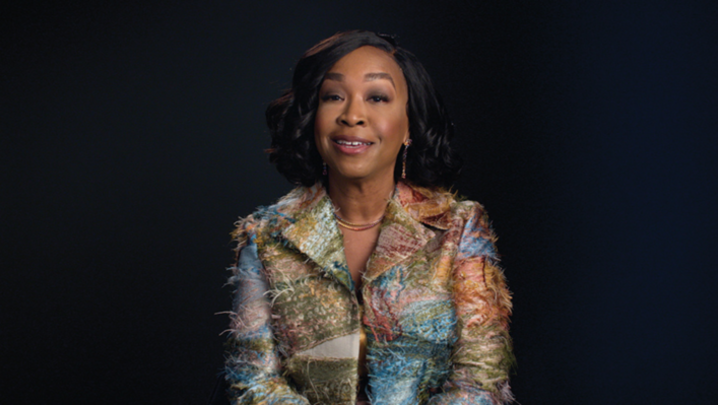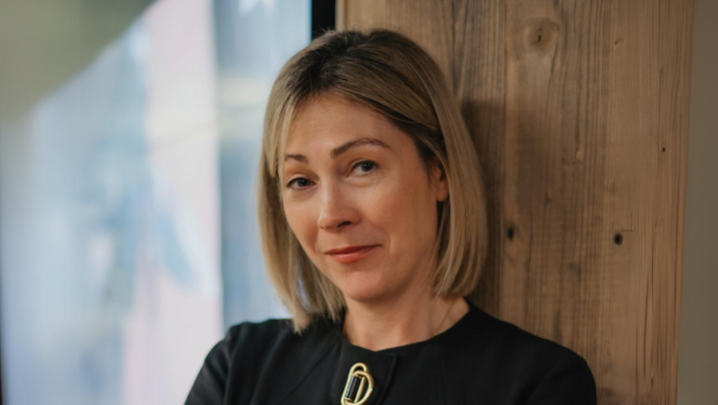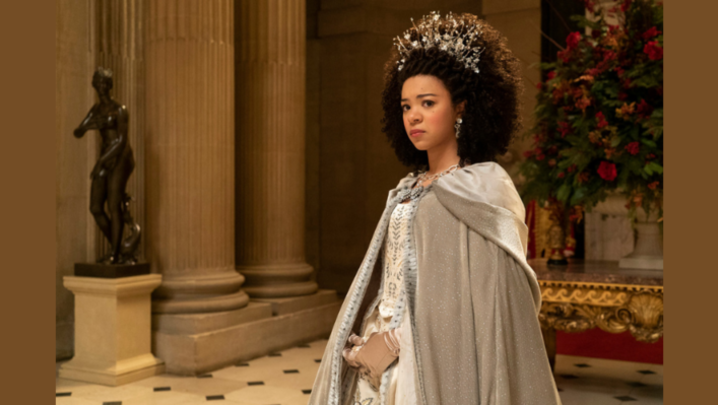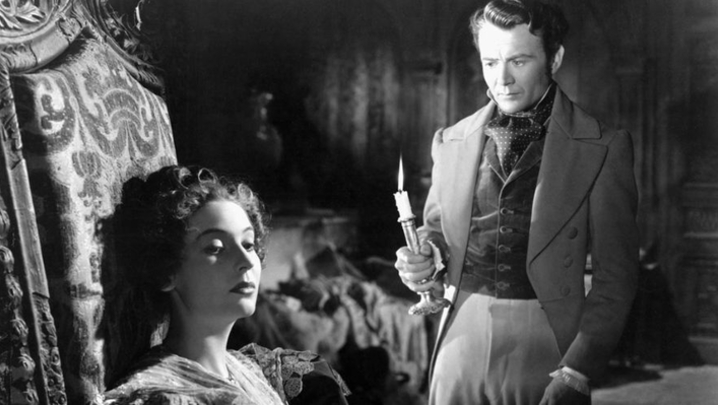Mark Lawson explains why TV period drama is leaving traditional versions of literary classics on the shelf
History can be measured by recurrent events, such as the Olympics and American presidential elections that come around every four years. Both, as it happens, take place again this year.
Television drama is less regularly repetitive, but adaptations of Dickens’s Great Expectations were screened by the BBC in 1959, 1967, 1981, 2011 and 2023. The lengthier interval either side of the millennium was filled by major film versions that became fixtures in the TV schedules.
The screen visibility of Dickens’s 1861 novel is almost matched by Jane Austen’s 1813 Pride and Prejudice, televised by the BBC in 1952, 1958, 1967, 1980 and 1995. In the last of these adaptations, Colin Firth’s Mr Darcy lake-dipped in a shirt that, by now dry, sold for $32,000 at an auction in March this year. A 2005 big-screen adaptation of the novel has also become familiar in TV listings.
By the previous rhythm, another Pride and Prejudice would be due on the BBC about now.
But there is no sign of one. And, while yet another Great Expectations turned up on cue last year, it marked not an historical continuation but a departure.
Abandoning the long tradition of television adaptations of Dickens faithful enough to the text that students of English Literature could safely use them as crammer aids – acted by RSC stalwarts with authentic period bonnets and side-whiskers – the recent Great Expectations had scripts by Peaky Blinders creator Steven Knight.
These turned Miss Havisham into an opium addict who gets off on conducting blindfold erotic play between Pip and Estella (“Teach him sex!”), while, elsewhere in Gravesend, Sara Gargery snarls, “Summon the beast within me!”, before giving Mr Pumblechook an S&M seeing-to with a strap. Any A-level students who use Knight’s six-parter as a Coles Notes with convenient fast-forward facility are likely to fail the exam.
Personally, I was sympathetic to Knight’s approach. With so many versions in existence, the BBC’s options were either to not make another Great Expectations (my preference) or to aim for originality. But, overall, the series received a critical lashing that made the Pumblechook flagellation look like a pat on the bum.
The pundits queuing to joke that this Great Expectations disproved the title for them seems – when combined with the fact that it is now almost 30 years since the BBC made a Pride and Prejudice – to suggest a crisis, or at least transition, in the genre of literary costume drama. This sense was confirmed by the fate of a recent planned BBC-HBO remake of Evelyn Waugh’s Brideshead Revisited, which, in its 1981 11-part ITV version, remains a gold standard for televised classics.
Perhaps regretting ITV’s triumph in what had previously been its own arena, BBC Films made a version in 2008 that was co-scripted by Andrew Davies.
Davies, the unofficial national classic adapter laureate, is known for making classic books box-fresh, including George Eliot’s Middlemarch (1994), the wet-top Firth Pride and Prejudice and multiple BBC Dickens series, among them Bleak House (2005) and Little Dorrit (2008).
The third major TV Brideshead was hoping to sign Cate Blanchett and Ralph Fiennes. Mooted by BBC Studios in 2020, as part of a “first look” deal with the Waugh estate, it was shelved in 2022; the director has tried to revive the project with streamers but failed.
If the classic literary serial is dead, the autopsy will examine various contributing causes. First, beyond the enjoyment and education they cumulatively gave to hundreds of millions of viewers, these shows served a vital political purpose in British TV. There has been much debate about what “public service broadcasting” means, but for culture ministers and backbenchers across many decades a recognisable definition was exam set texts expensively filmed.
'Contemporary period pieces... have the advantage of seeming simultaneously ancient and modern'
The result was that the BBC and ITV tended to transmit a period classic at times when the BBC licence fee or ITV licences (when commercial networks served a fixed term) were under heavy governmental or regulatory scrutiny.
It feels less than coincidental – and seems strategically very sensible – that the lavish 1980 and 1995 versions of Pride and Prejudice landed in the run-ups to the crucial BBC Charter renewals of 1981 and 1997, moments when the corporation suffered extreme prejudice from Conservative politicians about its cause for pride.
Equally, ITV’s high-profile adaptation of Jeeves and Wooster by PG Wodehouse (a totemic writer for older male Tories) in 1990 can be seen as insurance against what turned out to be a brutal 1991 round of ITV regional franchise renewals during the transition from Margaret Thatcher to John Major.
While the Wodehouse may have helped Granada stay on air, even an Austen and Dickens at 9.00pm every night would not have balanced out Thatcherite anger at Thames’s 1988 documentary Death on the Rock, about an anti-terrorist operation in Gibraltar. The London licensee duly lost its weekday franchise. The cost of period drama is punishingly high, because of large casts, fancy clothes and dressing old market towns to remove phone masts and chippies. The projected $110m budget of the “third” Brideshead Revisited was the major reason that BBC-HBO pulled out.
When filmed literature could swing legislators and regulators, the cost was justified as an investment in survival. But, these days, ITV is a permanent service, while it seems unlikely that the Tory right would feel more warmly towards the BBC if, during any of the five Conservative-led administrations in the last decade and a half, it had announced a raft of Dickens, Austen and Anthony Trollope dramas.
Nor would that strategy necessarily have been more effective with Labour or the Lib Dems because of a general political trend towards anti-elitism and social and racial diversity.
The great old books tend to have posh and white (Austen) or broader but equally white (Dickens) characters. A solution, which I support, is to cast the classics diversely, but attempts to do so bring complaints of inauthenticity from traditionalists.
How much easier, then, to go off-book and create shows such as Netflix’s Bridgerton, which, with the approval of the source books’ author, Julia Quinn, racially reimagines Regency England; Mary & George, Sky Atlantic’s 17th century Royal romp, based on a non-fiction book and exploring gay interstices of British history; or Prime Video’s Saltburn, which feels like a sexy modernisation of Brideshead Revisited.
Strikingly, Davies’s most recent TV classic was Sanditon, which started partially free-standing – based on Austen’s unfinished 1817 novel – and became entirely so, with Davies storylining 19 of the 20 episodes across three series.
These contemporary period pieces, as they might paradoxically be called, have the advantage of seeming simultaneously ancient and modern while also avoiding the risk of the head of the Austen or Dickens appreciation societies taking to The Times or BBC Radio 4’s Today to complain that the famous dead authors will be disturbing the earth above their graves.
Another reason for the reduction in the flow of “boxed” books is the rise of the TV box set, especially, in this case, of streamed back-catalogue material. The 1995 Pride and Prejudice was made because the 1980 version looked technically dated. Had the BBC simply shown it again, there would have been newspaper bleats about repeats.
Now, though, the concept of repeating has blurred, through the vast available digital archive, into re-running or rediscovering. Death Comes to Pemberley, a 2013 BBC adaptation of PD James’s crime fiction continuation of Pride and Prejudice, has found a second audience this year on Amazon Prime. When reshown last year, the then-28-year-old “wet shirt” Pride and Prejudice made the streamer’s UK drama top 10.
Reviewers and consumers of the 1989 ITV and 2011 BBC Great Expectations measured them against a memory of their predecessors. Last year, Knight’s detractors were able to watch the earlier versions on iPlayer or elsewhere for ammunition against the new show.
Period TV drama is changing because TV drama no longer stays in its period and politicians are less enchanted by the cultural past. Bridgerton and others suggest that writing new classics is the sense and, indeed, sensibility of the future.
Mark Lawson is a writer and broadcaster who covers culture for The Guardian and Radio Times.







